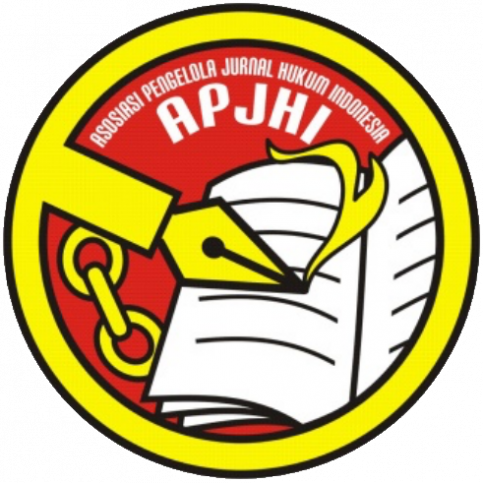COMFORT ZONE OF PEOPLE WITH DISABILITIES IN SOCIAL EMPOWERMENT ASPECTS BY LOCAL GOVERNMENTS REVIEWING FROM LAW NUMBER 8 OF 2016 ON PERSONS WITH DISABILITIES
Abstract
Based on the theory of the welfare state law, the State of Indonesia is a welfare law state which requires that the state is constitutionally responsible for the welfare of the general public without distinguishing normal citizens and citizens with special needs (disabled), regulated in the constitution which is the responsibility of the Central Government and Regional Governments. In the implementation of rights for people with disabilities, there are still many limitations due to a lot of factors, both internal factors (from the government) and external factors (from the family or society). Not only these two factors, a personal factor also greatly influences the implementation or failure of the implementation of the rights of people with disabilities, so much that it creates a comfort zone for people with disabilities. By using a normative juridical approach and empirical juridical approach, researching the law within the scope of library research and field studies, and using qualitative research specifications, the data analysis that the author did was qualitative data analysis-juridical analysis based on the nature of descriptive research, using primary and secondary data types. Secondary data includes primary legal materials, secondary legal materials, tertiary legal materials. The results showed that there were not a few people with disabilities who depend on their welfare to the Government with little effort to be independent and feel insecure with one weakness so they cover up their strengths and did not explore other advantages that could be found in themselves. Nowadays, we also often see people with disabilities who work as beggars and those who work as scavengers on the grounds that those professions are easier to do, and it is difficult to find work with their conditions.
Keywords : Comfort Zone, People with Disabilities, Local GovernmentFull Text:
PDFReferences
Ahmad Qodri A. Azizy., 2003, Community Empowerment in Developing Democratic Life in Indonesia, Central Jakarta : LEC Press.
Dedy Kustawan and Yani Memulyani, 2013, Introduction to Special Education & Special Service Education and Its Implementation, East Jakarta, Luxima Metro Media.
Gilang Pramana, 2013, Physical and Non-Physical Development, (Physical and Non-Physical Development in Badak Mekar Village, Muara Badak District, Kutai Kartanegara Regency), eJournal of State Administration, Volume 1, Number 1.
Jazim Hamidi, 2016, “Legal Protection against Disabilities in Fulfilling the Right to Education and Employment”, Journal of Law Ius Quia Iustum Favulty of Law, Indonesian Islamic University Jakarta, Volume 23 Issue 4.
Munawar Noor, 2011, Community Empowerment, CIVIS Scientific Journal, Volume I, No 2, provided by Journal of Universitas PGRI Semarang.
Eko Riyadi, 2018, Human Rights Law; International, Regional and National Perspectives, Ed.1 Cet.1, Depok ; Rajawali Press.
Sali Susiana, 2014, Fulfillment and Protection of the Rights of Persons with Disabilities, P3DI Secretariat General and Azza Graphic, Central Jakarta
Suhailah Hayati, Maulana Andi Surya., 2018,The Role of Social Services in Empowering Persons with Disabilities in Binjai City, Journal of Community Empowerment, Volume 6 No. 2, ISSN: 2355-8679.
DOI: http://dx.doi.org/10.31000/jhr.v10i1.5656
Article Metrics
Abstract - 879 PDF - 581Refbacks
- There are currently no refbacks.

This work is licensed under a Creative Commons Attribution-ShareAlike 4.0 International License.

